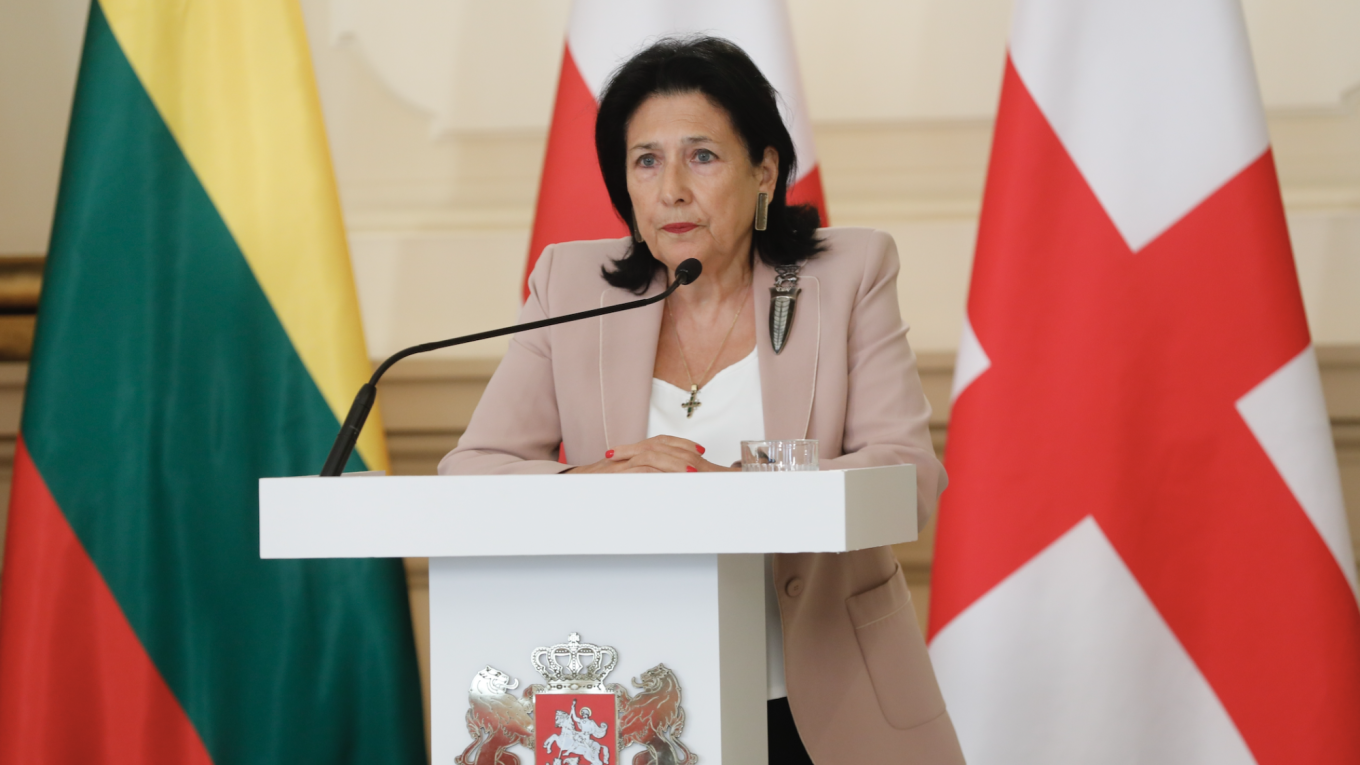Georgian President Salome Zurabishvili took a bold stance on Saturday by vetoing the contentious “foreign influence” law, a move symbolic in nature but significant in its defiance against growing concerns over Tbilisi’s European Union aspirations.
The legislation, pushed through by lawmakers from the ruling Georgian Dream party earlier this week, has ignited widespread protests, signaling a historic moment in the recent history of the Black Sea nation. Critics fear the law signals a shift away from Georgia’s pro-Western trajectory towards closer ties with Russia, reminiscent of Soviet-era policies.
In a televised address, President Zurabishvili condemned the law as having “Russian essence” and being in contradiction with Georgia’s constitution. However, despite her veto, the Georgian Dream party holds sufficient parliamentary support to potentially override it, raising questions about the law’s ultimate fate.
The bill, which requires NGOs and media outlets receiving over 20 percent of their funding from abroad to register as entities serving the interests of foreign powers, has drawn comparisons to repressive Russian legislation aimed at stifling dissent.
The unprecedented level of public outcry underscores Georgia’s firm pro-EU and NATO stance, with over 80 percent of the population expressing aspirations for European integration and a staunch opposition to Kremlin influence.
Brussels has reiterated its disapproval of the law, emphasizing its incompatibility with Georgia’s EU membership ambitions. European Council chief Charles Michel called for further reflection, urging lawmakers to seize the opportunity to steer Georgia back on its EU path.
President Zurabishvili’s plea for international support, notably from French President Emmanuel Macron, underscores the gravity of the situation. In a bid to rally support, she appealed for Macron’s presence during Georgia’s independence day celebrations, highlighting the broader significance of Georgia’s struggle for sovereignty and freedom from Russian influence.
As tensions persist between the president and the ruling party, the fate of the controversial law remains uncertain. Yet, amidst the turmoil, Georgia stands at a crossroads, grappling with the weight of its geopolitical identity and aspirations for a European future.






